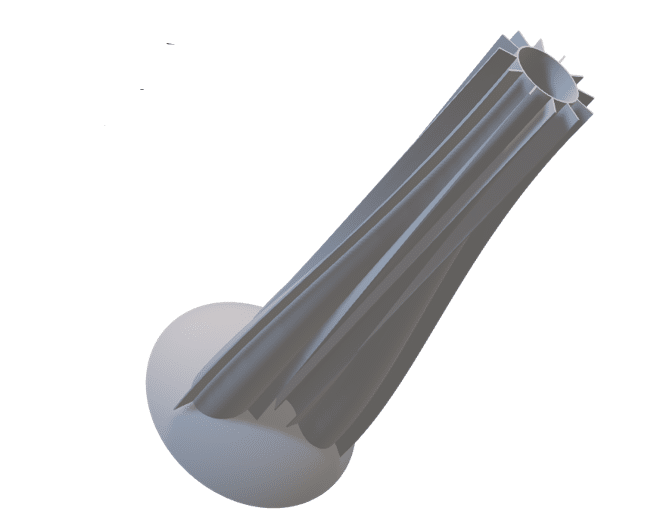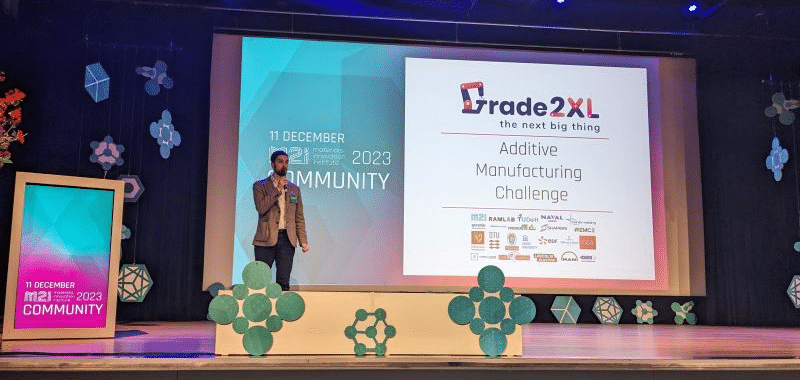As part of the WAAM Additive Manufacturing Grade2XL project, Antoine Queguineur was awarded the 2023 Jury Prize for a novel chimney concept: the KOTA chimney, which combines an original design with enhanced energy efficiency capabilities.
Antoine is currently preparing his thesis at Tampere University (Finland) under the supervision of Prof. I. Flores Ituarte, in co-tutelle with GeM (Centrale Nantes) under the supervision of Prof. Jean-Yves Hascoët.
His work is in the field of metal additive manufacturing, focusing on the WAAM (Wire Arc Additive Manufacturing) process. The main aim of this research is to understand and control the influence of deposition parameters on the characteristics of printed parts, from the macroscopic to the microscopic scale. This technical approach is complemented by a study of a train bogie, demonstrating the importance of combining design, manufacture and characterization of parts in order to prove their industrial applicability. This research was completed by the award of a prize in a European competition, linked to the Grade2XL project, focused on the design of large multi-material parts. The general concept is a design for a wood-burning fireplace manufactured using the WAAM process. The innovation is the possibility of combining a reduction in manufacturing constraints, improved thermal efficiency, reduced wood consumption through the use of thermal optimization tools, and a unique design for each home. This idea illustrates how additive manufacturing can revolutionize not only industry, but also contemporary design.
Antoine presented his design idea and received the award at the Materials innovation institute (M2i ) conference on December 12, 2023 in Arnhem (Netherlands). As a reward, the KOTA chimney will be printed by RAMLAB in the coming months.
 Grade2XL: a European H2020 project to develop multi-material WAAM
Grade2XL: a European H2020 project to develop multi-material WAAM
The Grade2XL project includes 21 WAAM (arc-wire additive manufacturing) process partners from 8 European countries. Coordinated by the Dutch research center M2i (Materials Innovation Institute), the project aims to demonstrate the potential of this manufacturing technology applied to large-scale structures – from 1 to 10 meters in length at this stage of demonstrating research results.
The high deposition rate of WAAM technology, combined with the process’s ability to control material properties down to the nanometer scale, enables the manufacture of parts with superior performance while guaranteeing their quality. In particular, WAAM enables multi-material manufacturing and the addition of functions while limiting material loss.




